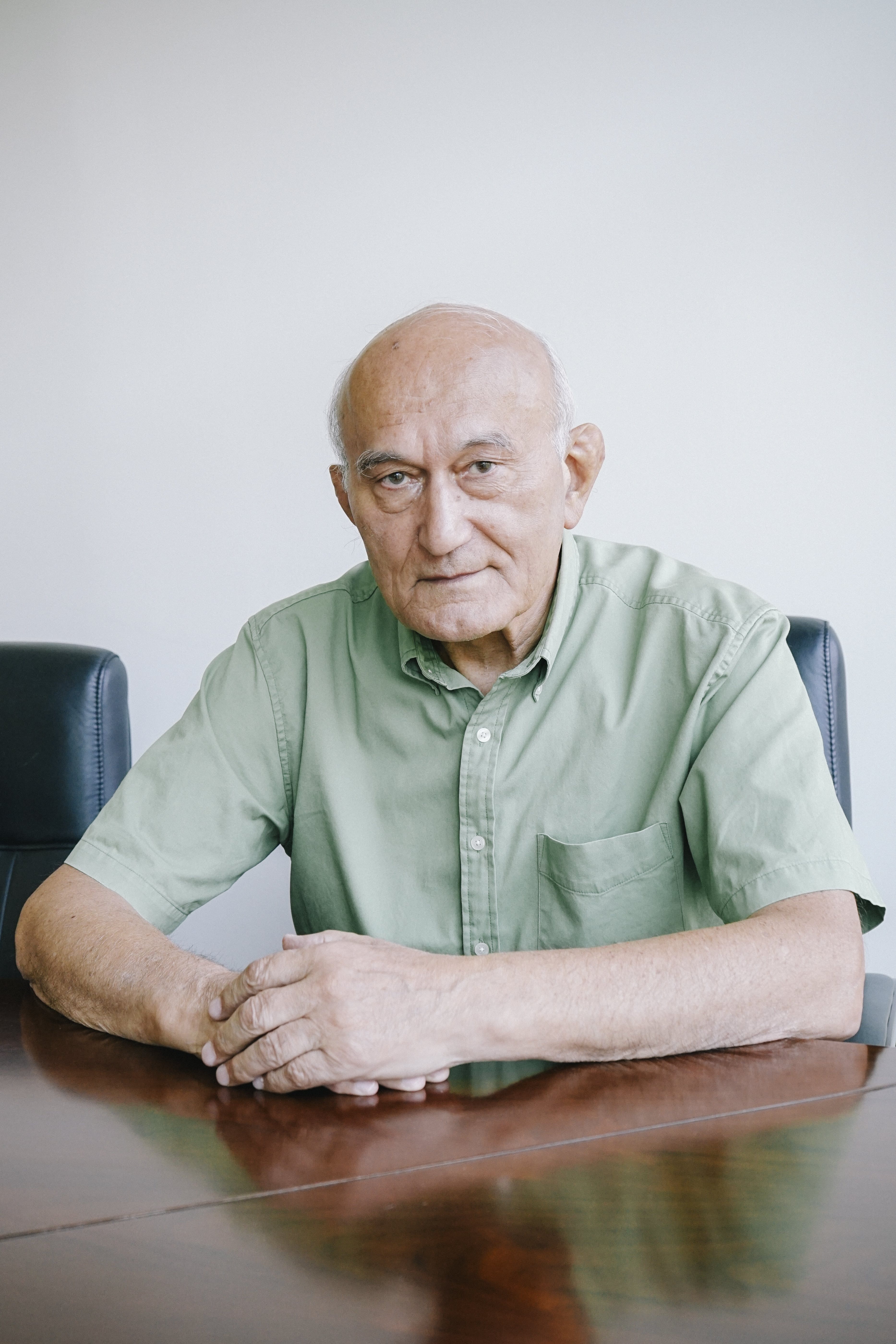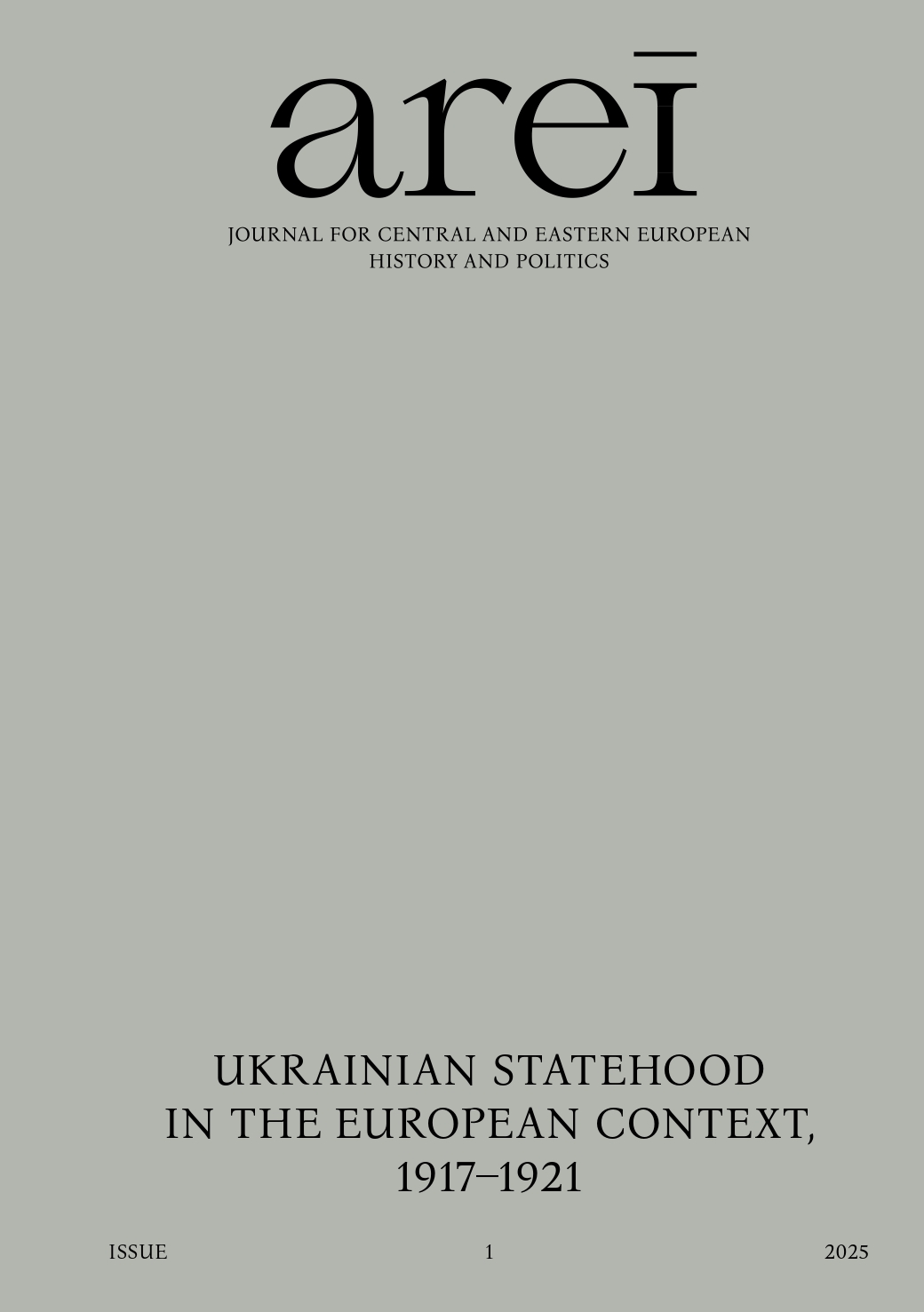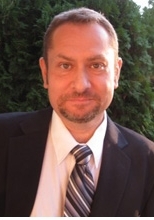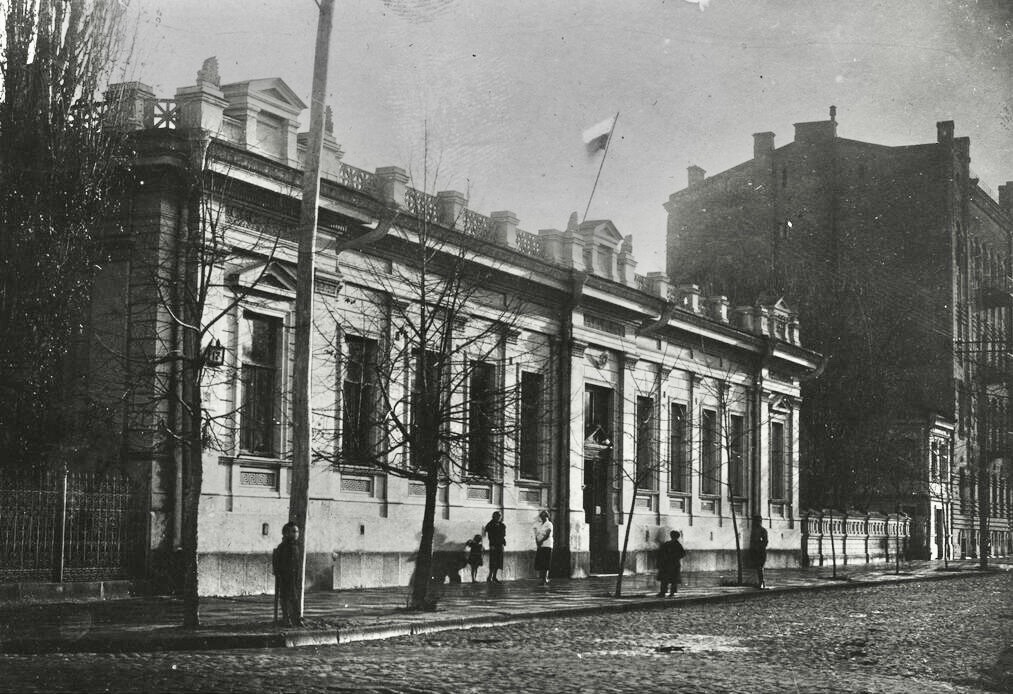Did you feel like a prophet in your own country, one that the majority didn’t want to listen to? I ask because you are a Belarusian politician and intellectual who has consistently warned for over thirty years about the danger from Russia, particularly from its special services. At the same time, in the eyes of many Belarusian opposition circles, you had the reputation of a radical.[1]
– No. The idea of being a prophet never crossed my mind. I simply knew the Russians, Moscow, their behaviour, and their aggressive policies very well. Communism was a form of Russian imperialism. Everything was predictable here. Communist propaganda didn’t affect me. Meanwhile, Soviet citizens watched Soviet television and were under the influence of Soviet propaganda. Lies seemed like reality to them. Living by lies, they couldn’t know the truth and were unable to perceive it. And when you told them something simple (and contrary to their illusions) that later came true, their worldview was turned upside down, and the truth seemed like prophecy.
The essence of Russian communism, the nature of Russian people and the Muscovian occupation were known to me from the start. You don’t need to be a prophet when you see the reality of Russian occupation every day. I grew up in Vilnius Region [which is now divided between Lithuania and Belarus – Łukasz Adamski] in an anti-Soviet environment. We didn’t like those Muscovites – boors, drunkards, and communists. My whole family fought against the Russian aggressors and their occupation policies. My grandfather, Jan Pazniak, the leader of the Belarusian Christian Democratic Party in Western Belarus and editor of the Belarusian newspaper Krynica, was executed by the Russians as a Belarusian activist in 1939.[2] I understood and knew from experience and observation what to expect from Russian banditry policies. As for being called a ‘radical’, even speaking Belarusian was considered ‘radicalism’ for people raised by colonizers and Belarus-haters. In short, those who spoke of radicalism in my work didn’t understand or know the meaning of what I was doing. This ignorance came from Belarusians who hadn’t broken ties with the Soviets and Moscow and repeated fantasies about a ‘democratic Russia’, which is fundamentally impossible.
Please tell me, is your anti-Soviet and anti-Russian stance, for which you are known as a politician and intellectual, something inherent to you? Is it a result of the values and atmosphere in which you grew up, or did you come to it later in life?
– From the beginning, I understood what the ‘Soviets’ were. But the later experiences of education work among Belarusians and the fight for a free Belarus, as well as Muscovian-KGB repressions against Belarusians, taught us a lot, especially in a practical sense.
You were born in Subotniki, in the historical Vilnius Region. Certainly, there were comparisons of what it was like ‘under the Poles’, ‘under the Germans’, and ‘under the Soviets’. How did this atmosphere differ from that of Minsk or other cities, and indeed whole regions of eastern Belarus which came under Soviet rule after the First World War?
– There was a difference. People in the historical Vilnius Region, in Hrodna and Brest Regions (areas of Western Belarus), had private property, owned their land, worked it, and were its masters until 1950 (when the Soviets set up collective farms). But then, in 1949–1950, the Russians took land, horses, ploughs, harnesses, livestock, and even houses from the Belarusians and forced them into collective farms, and that’s what caused the greatest hatred and rejection of the occupiers, which I saw and personally experienced.
In Eastern Belarus, the Soviets plundered the people as early as the 1930s, with hundreds of thousands of Belarusians executed, deported to Siberia, to the steppes of Kazakhstan, to the so-called “GULAG”. As a result, the mindset of society in Eastern Belarus was already shaped by a generation that, from the beginning, had no property (it had been taken from their parents) and did not work on their own land. This generation was more passive and more heavily influenced by the occupying communist propaganda.
How would you describe the hopes and moods of the people in Belarus during the Perestroika period? When you spoke to your compatriots, first as a dissident, then as a politician, about the non-Soviet traditions of Belarus and its national past, did it feel like reminding them of a history and culture that couldn’t be openly discussed under the Soviets? Or was it more like passing on information they didn’t know until then?
– Gorbachev’s ‘Perestroika’, like all other initiatives of communist Moscow, wasn’t taken seriously in Belarus (even by the nomenklatura). However, the national intelligentsia tried to use it to open up the truth about Belarusian history, the repressions of the 1920s–1950s, the war, Belarusian culture, and more. Partially, this succeeded. Dissidents and national revival activists emerged. The Soviet authorities persecuted them, but the GULAG no longer existed. There was limited freedom of manoeuvre.
As for knowledge of Belarusian national history, which had been effectively banned and falsified – especially the history of Belarusian statehood and the Grand Duchy of Lithuania (as Belarus was formerly known) – the intelligentsia, who had secretly known much, now embraced the newly available information about the Grand Duchy and Belarusian history with great enthusiasm, and they increased this knowledge. The masses of ordinary people, who had been cut off from history, also welcomed it favourably as something new (about which they had previously been unaware), and with satisfaction because they subconsciously felt an elevation of their self-esteem. In short, the revelation of the truth unfolded in society as a positive national process. However, the Soviets and the communist nomenklatura approached it with caution and apprehension as they sensed that this process of democratizing people’s thinking could threaten Soviet power.
How did the Soviet Belarusian nomenklatura react to your activities and to the creation of the Belarusian National Front?
– Oh! Very negatively, hostile, and, I would even say, on the verge of hysteria. They even prepared several lawsuits against me, but nothing came of it. Once, thousands of people came to protest at the courthouse in support of me (this was in 1988). The court panicked and cancelled the session. So, I wasn’t convicted at that time. The communists were already acting uncertainly then.
And how did the Russian elites react to your activities? The secret service? Presumably unfavourably. Did they have time to deal with you, and if so, what kind of actions were taken? Or did they leave that to the Belarusian post-Soviet nomenklatura?
– At first (1988–1991), Moscow relied on the repressive apparatus in the BSSR. In Moscow, they probably thought I could be suppressed here without their involvement. Later (from 1992), the presence of Moscow special forces became more noticeable. They were particularly stirred up in early 1994 after my meeting with U.S. President Bill Clinton at Kurapaty and the publication in January 1994 of my programmatic article (in Russian) titled ‘On Russian Imperialism and its Danger’. Under pressure from Moscow, the Prosecutor General opened a criminal case against me because of this article. But unexpectedly for the Muscovites, the communist Supreme Soviet refused to strip me of parliamentary immunity. (Only 110 deputies out of 345 voted for it). Why did this happen in a parliament where 90% of the deputies were communists? I believe that after the collapse of the USSR and the creation of the Republic of Belarus, some of these communists felt more Belarusian and subconsciously understood Moscow’s harmful policies. I also believe that many of them had enough human decency not to put a parliamentarian on trial for an article in a newspaper, especially their opponent.
And what did you write there, in that article?
– I asserted that Russia could not become a democratic country because it is an imperialist great power with a tradition of seizing foreign lands and committing violence against people. Aggression and an attempt to territorially restore the Soviet Union should be expected. Moreover, any government seated in the Kremlin will pursue such an imperial policy.
At that time, for post-Soviet people (who were living under the illusions of Yeltsin), hearing such things was unusual. Russian propaganda was outraged, demanding punishment for the author.
Was there collaboration between Belarusian national activists and the Ukrainian ‘Rukh’[3]? Between you and Vyacheslav Chornovil,[4] the leader of that movement, for example?
– There were very warm and cordial relations with the Ukrainian ‘Rukh’. I developed a friendly relationship with Vyacheslav Chornovil. We invited each other to congresses, had joint projects (for example, the construction of the Baltic-Black Sea oil pipeline, the creation of the Baltic-Black Sea community of states of Ukraine, Belarus, the Baltics, etc.), and participated in joint rallies, conferences, and more.
What was your cooperation with Polish elites from the anti-communist opposition? Who, from your perspective, was particularly interested in Belarus? Who cooperated with you?
– In the early 1990s, we had contacts with the ‘Confederation of Independent Poland’ (Konfederacja Polski Niepodległej), led by Leszek Moczulski,[5] and partly with ‘Fighting Solidarity’[6] (Solidarność Walcząca), including Kornel Morawiecki,[7] Piotr Hlebowicz,[8] Jadwiga Chmielowska,[9] Robert Bodnar,[10] and others. There were ongoing contacts and relations between the Belarusian National Front and myself with Poland’s first General Consul in Belarus, Tadeusz Myślik,[11] and later with Poland’s first Ambassador to Belarus, Elżbieta Smułkowa.[12] In the early 1990s, during the visit of the President of Poland, Lech Wałęsa, to Belarus, I had two meetings with him, one of which took place in Kurapaty near the Polish memorial cross.
Good relations were also established in exile (in 1996, I emigrated to Poland and later to the USA), and there were mutually supportive contacts with the “Movement for the Reconstruction of Poland”[13] (Ruch Odbudowy Polski [ROP]), led by former Prime Minister Jan Olszewski[14] and others. In particular, the activities of Poland’s first ambassador to Belarus, Elżbieta Smułkowa, contributed to strengthening Polish-Belarusian relations. In the second half of the 1990s and the early 2000s, the Belarusian National Front, together with members of the Polish “Fighting Solidarity”, established a joint organization called “Poland-Belarus in the name of General Stanisław Bułak-Bałachowicz”. We organized joint actions in Krakow and Warsaw. The organization was led alternately by Piotr Hlebowicz and me (your interlocutor). We cooperated with ROP and Jan Olszewski.
What difficulties did you encounter when speaking with Western politicians in the 1990s?
– I would divide them into U.S. politicians and European politicians. The level was different. Americans are professionals, well-informed, with rational thinking. I had conversations with various politicians and congressmen in the so-called “American Committee”, with Zbigniew Brzeziński, General Alexander Haig,[15] and with the staff of Senator Joe Biden (currently the President of the United States in 2024). As for Europe, there were meetings with politicians in Brussels (European Parliament), in London, in the Czech Republic, and especially in Paris (late 1990s), where, during a conversation with a deputy foreign minister, I saw that he didn’t understand at all how Lukashenko could be a nominee of Russia. Knowledge about Belarus was non-existent, as it was for most European politicians, and there was a notable infantilism in discussions about Russia. The difference between them and Americans was palpable. And nothing has changed over time. I got the impression that the European Union is a giant bureaucratic monster, where bureaucracy has replaced democracy and lives in its own bureaucratic ecosystem according to principles that don’t change. But this is just an opinion – perhaps it’s subjective.
The year 1994 saw the first presidential elections in Belarus’s history, which resulted in Alexander Lukashenko coming to power. Given the social mood at the time, the economic crisis, post-Soviet nostalgia, and the high level of Russification, was this outcome inevitable? Apart from Lukashenko and the then-Prime Minister Vyacheslav Kebich,[16] who appealed to a similar electorate as Lukashenko, you and the then-speaker of parliament, Stanislav Shushkevich, also ran. However, the two of you came in third and fourth places, respectively, even though the ideas of a European and national Belarus were close to both of you. The combined votes you received were 22%, more than what Kebich received, who advanced to the second round but lost to Lukashenko. Perhaps it would have been worth joining forces with Shushkevich?
– There’s a lot of propaganda claims in this statement which float on the surface but have nothing to do with reality. Such statements usually came from Muscovites, from the KGB, and from people far removed from politics.
The first thing to know, as has been proven in documents (for example, the written testimonies of Prime Minister Kebich and his memoirs), is that Lukashenko and Kebich’s election campaigns were entirely managed by Moscow’s FSB and its agents in the Belarusian KGB. Both Kebich and Lukashenko acted together against the BPF candidate, Zianon Pazniak (me). The goal was to prevent me from gaining power. Kebich was put forward as a target for criticism that was favourable to Lukashenko to win points with the people, who hated Kebich and saw him as the cause of the economic downturn and declining living standards.
To ensure Lukashenko’s victory, Moscow and the KGB planned to bring both Lukashenko and Kebich to the second round of elections (under no circumstances was Pazniak to be in the second round). But in reality (as we later learned), Kebich came in fourth. Zianon Pazniak (me) came in second with more than 22%, and Shushkevich came in third. For Moscow, this was nearly a disaster, but the Soviet administrative falsification machine was ready. As a result of the falsification, 10% of the votes were taken from me and given to Kebich. This combination allowed Moscow to “win” the elections.
I’ll add that Lukashenko didn’t even have an electoral program. Apart from an excellent program of political and economic reforms, I already had a government formed from the nation’s elite, consisting of 50 people. Moreover, my presence in the second round (and Kebich’s absence) would have deprived Lukashenko of his main propaganda argument: criticizing Kebich as the cause of all evil. Winning the second round would have been very difficult for Lukashenko. But in the end, Moscow achieved what it wanted.
The thesis that Shushkevich and I hindered each other in the elections is artificially invented by amateurs. Pazniak and Shushkevich had different electorates. Shushkevich was supported mainly by Russian-speaking, pro-Moscow democrats; Pazniak was supported by the entire nationally conscious Belarusian democratic spectrum. Undoubtedly, the behaviour of the post-Soviet Belarusian electorate was influenced by the economic downturn, inflation, and Moscow’s propaganda. The main Soviet mass of voters fell for populist promises. However, I would have had the opportunity to reverse all these sentiments in the second round, where Lukashenko would have been deprived of his imaginary opponent, Kebich, and would have faced a real one. Moscow worked professionally here but, as always, treacherously.
In 1995, Lukashenko called a referendum to restore the Russian language’s status as an official language and replace the flag and coat of arms of Belarus, which referred to the traditions of the Grand Duchy of Lithuania, with modified symbols of Soviet Belarus. At that time, as a deputy, you and several other deputies – colleagues from the Belarusian National Front – led a hunger strike, pointing out that the questions posed contradicted Belarus’ constitution. However, the referendum took place, and 83% of Belarusians voted for Lukashenko’s language proposal, and 75% for the flag and coat of arms.
Was the referendum fair? How reliable are these results? What percentage of Belarusians, in your observation, actually supported these slogans?
– Before adopting the decision to hold an unconstitutional referendum (1995), Lukashenko, under Moscow’s pressure, brought the military into parliament (600 armed men from the KGB “Alpha” unit and special forces of the internal troops). The military beat the BPF opposition deputies, who protested the unconstitutional decision and forcefully expelled them from parliament. This was an anti-state crime and a coup. Lukashenko should have been brought to trial, but the junta that seized power already had strength, and the trial never took place. The unconstitutional referendum was held in violation of the law, and its results were falsified. The question about the flag, for example, was formulated in such a way that people voting for the “new flag” thought it referred to the White-Red-White Flag, which was indeed a new one. The final stage of Lukashenko’s coup (the illegal adoption of the constitution of dictatorship as a result of the referendum) took place in November 1996 with the direct involvement and influence of senior Russian officials (Viktor Chernomyrdin,[17] Yegor Stroyev,[18] Gennady Seleznev[19]).
In 1996, you left Belarus after learning of a planned assassination attempt against you. If that was the case, by leaving you avoided the fate of several of Lukashenko’s opponents who disappeared – and were in fact murdered – in 1999. However, naturally, you may have had less impact on the situation in Belarus from abroad. Finally, one last question: What do you consider your greatest success as a politician, and what do you consider your biggest failure?
– The greatest success is the independence of Belarus. It was the dream and the meaning of my life from the very beginning of my conscious existence. It was worth fighting for an independent homeland.
The greatest failure (which led to the occupational dictatorship) is that in 1994 we were objectively unable to prevent the introduction of the presidential system in parliament in Belarus. Moscow cleverly supported both Kebich and Lukashenko simultaneously. The communists, the KGB, and Belarusophobes united in parliament and the system of power as one. They wanted to return to the USSR, to strong power, and to be with Russia. Except for us, the members of the Front, it seemed no one understood what awaited Belarus and what it would soon become.
Interview was conducted by ŁUKASZ ADAMSKI
[1] Interview was conducted on 20 August 2024.
[2] Jan Paźniak, known also under the Polonized name Poźniak (1887–1940), was a Belarusian political and cultural activist, publicist, and key figure in the Belarusian national movement in Vilnius. He served as chairman of the Belarusian National Committee and played an important role in the Belarusian Christian Democratic movement. Poźniak was arrested by Soviet authorities in 1939 and is believed to have been executed by the NKVD during the Katyn Massacre in 1940.
[3] Rukh (“Narodny Rukh Ukrainy”, People’s Movement of Ukraine) was a prominent opposition political movement formed in 1989 during the late Soviet period. Initially established as a democratic pro-reform organization advocating for Ukrainian independence, Rukh played a significant role in mobilizing public support for Ukraine’s sovereignty, which it achieved in 1991. The movement united intellectuals, activists, and reform-minded politicians, eventually becoming a political party. Its legacy includes promoting Ukrainian nationalism, cultural revival, and democratic values. Rukh’s influence declined in the 2000s as various factions splintered from the movement.
[4] Vyacheslav Chornovil (1937–1999) – a prominent Ukrainian politician and dissident, leader of the Ukrainian national movement ‘Rukh’, and an advocate for Ukrainian independence.
[5] Leszek Moczulski (1930–2024) – Polish historian, writer, and politician, founder of the Confederation of Independent Poland (KPN), an underground political party that opposed communist rule in Poland.
[6] Fighting Solidarity was a radical anti-communist organization in Poland, founded in 1982 by Kornel Morawiecki. It emerged as a splinter group from the Solidarity (Solidarność) movement, advocating for more aggressive methods of resistance against the communist regime. Unlike mainstream Solidarity, it rejected any negotiations with the authorities, aiming for the complete overthrow of communism.
[7] Kornel Morawiecki (1941–2019) – Polish politician and physicist, founder of “Fighting Solidarity”, a radical anti-communist organization in Poland of the 1980s.
[8] Piotr Hlebowicz (born in 1963), Polish writer, a prominent member of Fighting Solidarity.
[9] Jadwiga Chmielowska (born in 1954) – Polish journalist and political activist, a member of Fighting Solidarity and supporter of Belarusian independence movements.
[10] Robert Bodnar (1967–2005), Polish archaeologist, anti-communist opposition activist.
[11] Tadeusz Myślik (1927–2011) – Polish diplomat, Poland’s first General Consul in Belarus after the fall of communism.
[12] Elżbieta Smułkowa (born in 1931) – Polish diplomat and scholar, Poland’s first ambassador to Belarus.
[13] The Movement for the Reconstruction of Poland (“Ruch Odbudowy Polski”, ROP) was a conservative political party in Poland, founded in 1995 by former Prime Minister Jan Olszewski. The party advocated for strong national sovereignty, a break from communist influences, and closer ties with NATO and Western Europe. ROP played a significant role in the political landscape during the 1990s, particularly among patriotic and anti-communist circles.
[14] Jan Olszewski (1930–2019) – Polish lawyer, defender in political trials during the communist period, and politician; served as Prime Minister of Poland (1991–1992).
[15] Alexander Haig (1924–2010) – American General and politician, served as U.S. Secretary of State 1981–1982, and NATO Supreme Allied Commander (1974–1979).
[16] Vyacheslav Kebich (1936–2020) was a Belarusian politician and economist who served as the Prime Minister of Belarus from 1991 to 1994. He played a key role in Belarus’s early post-Soviet transition but lost the 1994 presidential election to Alexander Lukashenko.
[17] Viktor Chernomyrdin (1938–2010) – Russian politician, served as Prime Minister of Russia (1992–1998); known for his involvement in shaping post-Soviet Russian policies towards neighbouring states.
[18] Yegor Stroyev (born in 1937) – Russian politician, served as the Chairman of the Federation Council of Russia 1996–2001.
[19] Gennady Seleznev (1947–2015) – Russian politician, Speaker of the State Duma of Russia (1996–2003).







